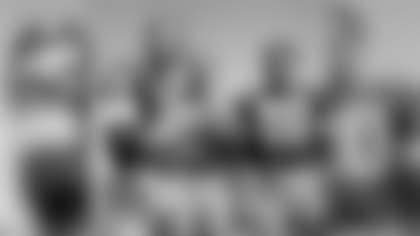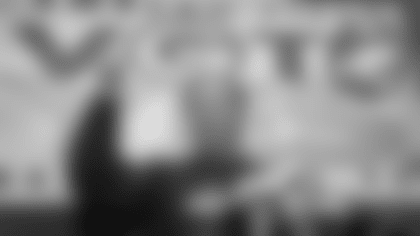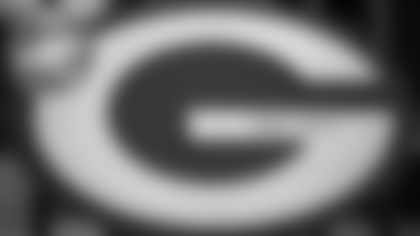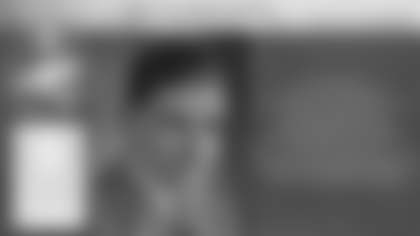Ed from Canton, SD
I'm 63 years old and have been a Packers fan all my life due to my dad being raised on a farm about a half-hour north of La Crosse. I remember a number of unexpected Monday Night Football wins by the Bart Starr-led Packers, mostly over superior teams and wished he would have been able to motivate his teams to play their best in all of their games.
True, in his nine years as coach, two of Starr's biggest wins came on Monday Night Football. The first was in 1979, the first Monday night game ever played at Lambeau Field, when the Packers upset New England, the defending AFC Eastern Division champions, and a team that would finish 9-7 that season. The other was in 1983, when the Packers beat defending Super Bowl champion Washington, 48-47. Washington finished that season 14-2 and lost in the Super Bowl. Also, while Starr's overall regular-season record was 52-76-3, he was 4-3 in nationally televised Monday night games. But I'd remind you of a few other numbers. In nine years, Starr's record against teams that finished with 10 wins or more was 2-27. Washington was one of the wins. The other was his first-ever as coach, five games into the 1975 season, when the Packers upset the Cowboys, who would finish 10-4. That was a Sunday afternoon game in Dallas. Starr's record against teams that finished with a winning record was 13-47-1. Nine of the 13 wins were against teams that finished 9-7, and two others were over teams that finished 5-4 in the strike year. Actually, because the Packers were so bad and the Monday night game was the NFL's marquee matchup of the week back then, Starr's teams were scheduled for only four in his first eight years. But after they made the playoffs in 1982, they were scheduled for three Monday night games the next year. Everyone seems to remember the Washington win and everybody seems to conveniently forget the Monday night game three weeks earlier, when the Packers lost 27-3 to a Giants team that finished the season 3-12-1. That was the game where announcers Frank Gifford, Don Meredith and Howard Cosell never stopped cackling over how bad the Packers were. Cosell described them as "a totally intimidated team" and "unbelievably inept." He also wondered if his friend Vince Lombardi was turning over in his grave. When Meredith was ready "to turn out the lights," his signature line when games got out of hand, he suggested the Packers should run the clock out on themselves and end their own misery. In their third Monday night game that year, the Packers won in overtime, 12-9, against a Tampa Bay team that finished 2-14. Ed, sorry to say, but I think those Monday night wins you remember were an anomaly, not something that happened "a number" of times.
Joe from Santa Barbara, CA
I know much has been made of the abysmal 1970s and '80s. I get it. I lived through them, too. But it wasn't all bad. In fact, the acquisition of wide receiver John Jefferson was a bright spot that I believe is often overlooked if not sadly dismissed. In my mind, he was the Reggie White signing before Reggie White signed, so-to-speak. I know. J.J. was acquired in a trade. But J.J.'s undeniable talent and confidence coupled with an effervescent personality in my opinion sparked the Packers' strong finish in 1981 and helped propel the Pack into the playoffs in 1982. I can assure you as a grade-schooler, I was all in.
I hate to spoil childhood memories. Wouldn't most of us agree that our fondest recollections of sports were when we were kids? Do you know how exciting it was to watch the Packers barely hang on to beat the Eagles, 38-35, for their only victory in 1958? That's the only game from that season I remember anything about. So, Joe, continue to cherish your memories of those early 1980s teams. And, yes, there were some exciting moments in Jefferson's 52 games with the Packers, including two in the postseason. In Jefferson's first game after the trade, on Sept. 27, 1981, he caught seven passes for 121 yards against the Vikings. Later in the year, he had a game against the Lions at Lambeau Field where he caught eight for 113 yards. In 1982, he started the season with a six-catch, 116-yard performance against the Rams in what was the biggest comeback in Packers history and then climaxed the season with a six-catch, 148-yard day against the St. Louis Cardinals in the Packers' lone playoff victory during those "abysmal" two decades – to borrow your term. But Jefferson didn't come cheap. He cost the Packers a No. 1 draft pick, a nine-spot drop another year in the first round, two second-round picks and wide receiver Aundra Thompson. And what did the Packers gain from it? A playoff berth in strike-shortened 1982 and one playoff win in what was a 16-team Super Bowl tournament that year. In those four regular-season games in 1981 and '82 where Jefferson gained more than 100 yards, the Packers won twice. In his 7-for-121 debut against the Vikings, the Packers lost, 30-13. Jefferson's best year in Green Bay was 1983 when he caught 57 passes, seven of them for touchdowns. James Lofton had 58 receptions, but averaged 22.4 yards per catch compared to Jefferson's 14.6. In 1984, Jefferson's stats plummeted to 26 catches and zero touchdowns. The next year, the Packers gave him away to Cleveland for a seventh-round draft choice and he caught three passes in seven games in what turned out to be his final NFL season. He was washed up at 29. Normally, when you make a trade of that magnitude or pay the money the Packers gave White, it's to get you over the final hump to win a championship. Super Bowl XXXI was the payoff for signing White. The payoff for Jefferson? 8-8 in 1981, 5-3-1 in 1982, 8-8 in 1983 and 8-8 in 1984. And contrary to what many believe, the Packers weren't exactly an offensive juggernaut other than in 1983 when they ranked second in the league, but didn't make the playoffs. In Jefferson's other three seasons, the offense ranked 23rd and 12th under Starr in 1981 and '82, and sixth in 1984, Forrest Gregg's first season. Despite his record-setting numbers in San Diego, Jefferson lacked speed and wasn't a good fit for the Packers' vertical passing game. The coaches complained about his commitment and conditioning, and one of his teammates told Sports Illustrated before the playoffs in 1982 that Jefferson still didn't know the plays after almost two years in Green Bay. In my book, it was one of many botched personnel moves of that era. But I also get that it gave young fans like you something to cheer about in dismal times.
Tom from Green Bay
Is Harper Davis the oldest living Green Bay Packer?
Yes, as far as I know. Good call. Davis is 94. Fred Cone also is 94, but was born seven months after Davis.
David from Tucson, AZ
Did Ken Iman replace Nelson Toburen after he broke his neck in that game in 1962? I was at the game and only 15, as I recall.
Yes. Good memory. Iman finished the game at left linebacker. He also started four days later when the Packers played the Lions on Thanksgiving and lost for the first and only time that season. That was probably the worst loss in Lombardi's nine years. While the game is best remembered for the Lions' overpowering pass rush and Packers' "look-out blocks," Detroit also gained a good chunk of its 153 rushing yards running at Iman's side. With the roster limit at 36, the Packers kept only four linebackers that season. Iman, who was in his third year as Jim Ringo's backup at center, was the fifth, but had never played defense in a game until Toburen got hurt. Iman also started against the Rams at Milwaukee County Stadium on Dec. 2, a game the Packers won, 41-10, and played much better. Starter Dan Currie returned to the lineup for the final two regular-season games and the NFL Championship Game against the Giants.
Andy from Wisconsin Rapids, WI
Before the recent renovation, members of the Packers Hall of Fame were represented by plaques on the wall. Now, they are recognized by footballs with their names on them. Is the Hall of Fame retaining those plaques in case they decide to revert back?
I'm told yes, that they have been stored in the Green Bay Packers Hall of Fame, Inc., archives, although I don't know of any plans to switch back.















